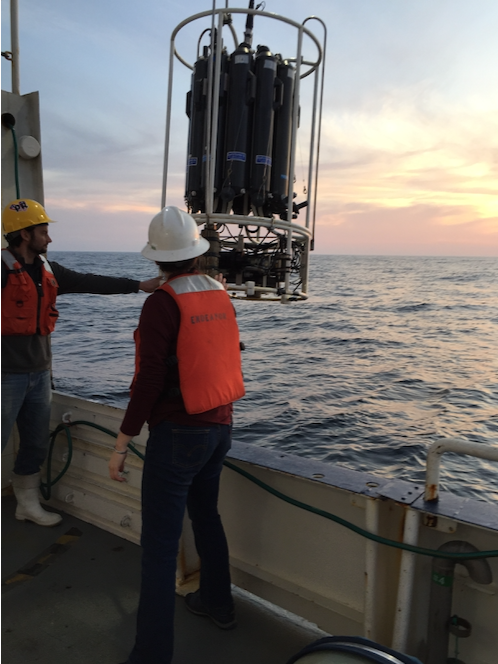The Northeast U.S. Shelf (NES) Long-Term Ecological Research (LTER) project integrates observations, experiments, and models to understand and predict how planktonic food webs are changing in the region, and how those changes may impact the productivity of higher trophic levels. The NES region is one of the most biologically productive regions in the world and supports many commercially important fish species. The NES-LTER site is a north to south transect line that extends from coastal waters to the shelf-break and is visited four times a year to observe seasonal changes in the ecosystem. As one of 11 Co-PI’s (principal investigators) affiliated with this project, The Rynearson Lab aims to answer the following questions, 1) characterize low and high export food webs, 2) understand the linkages and transfer of energy from the phytoplankton to pelagic fish, and 3) identify the mechanisms that underlie shifts between high and low export communities. Currently, research goals are focused on identifying patterns and controls of primary production as well as the succession and organism interactions among plankton communities along the NES. For more information, please visit the NES-LTER webpage.
Northeast U.S. Shelf LTER

